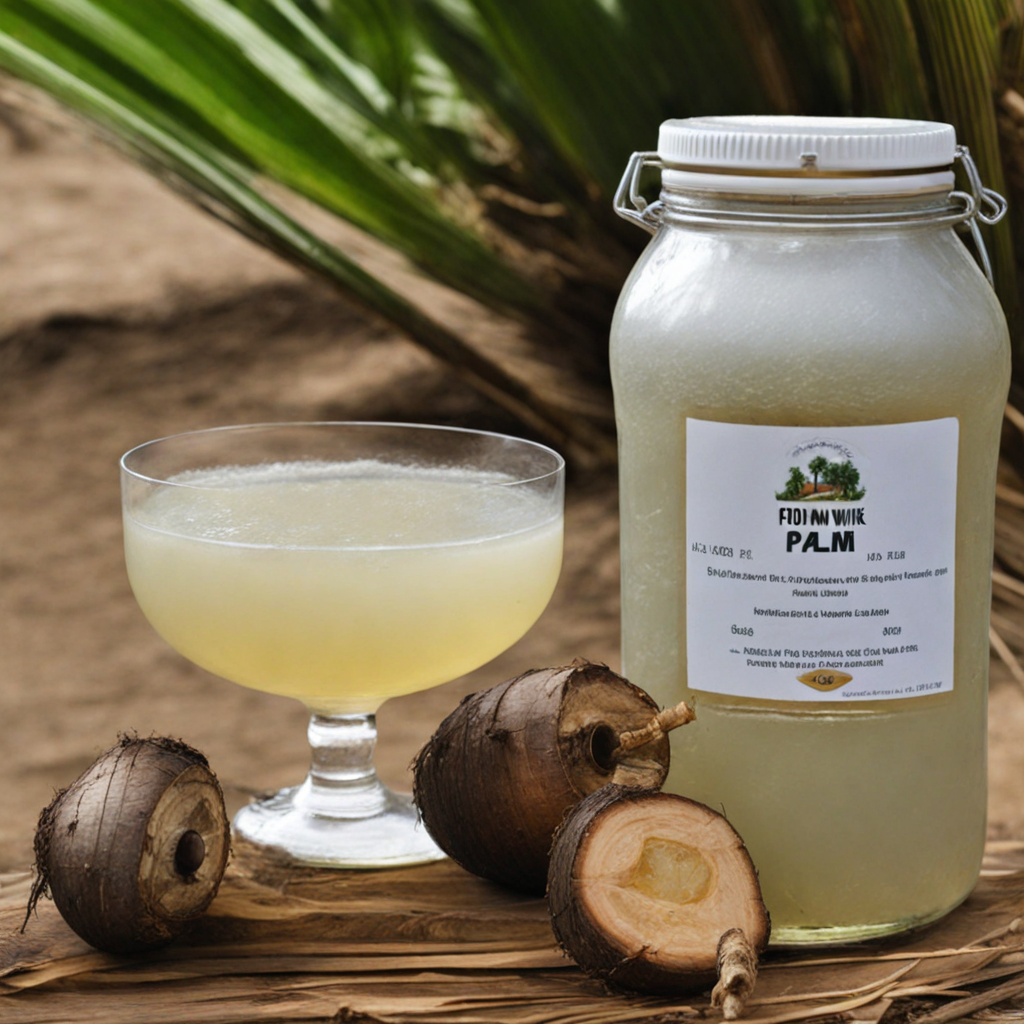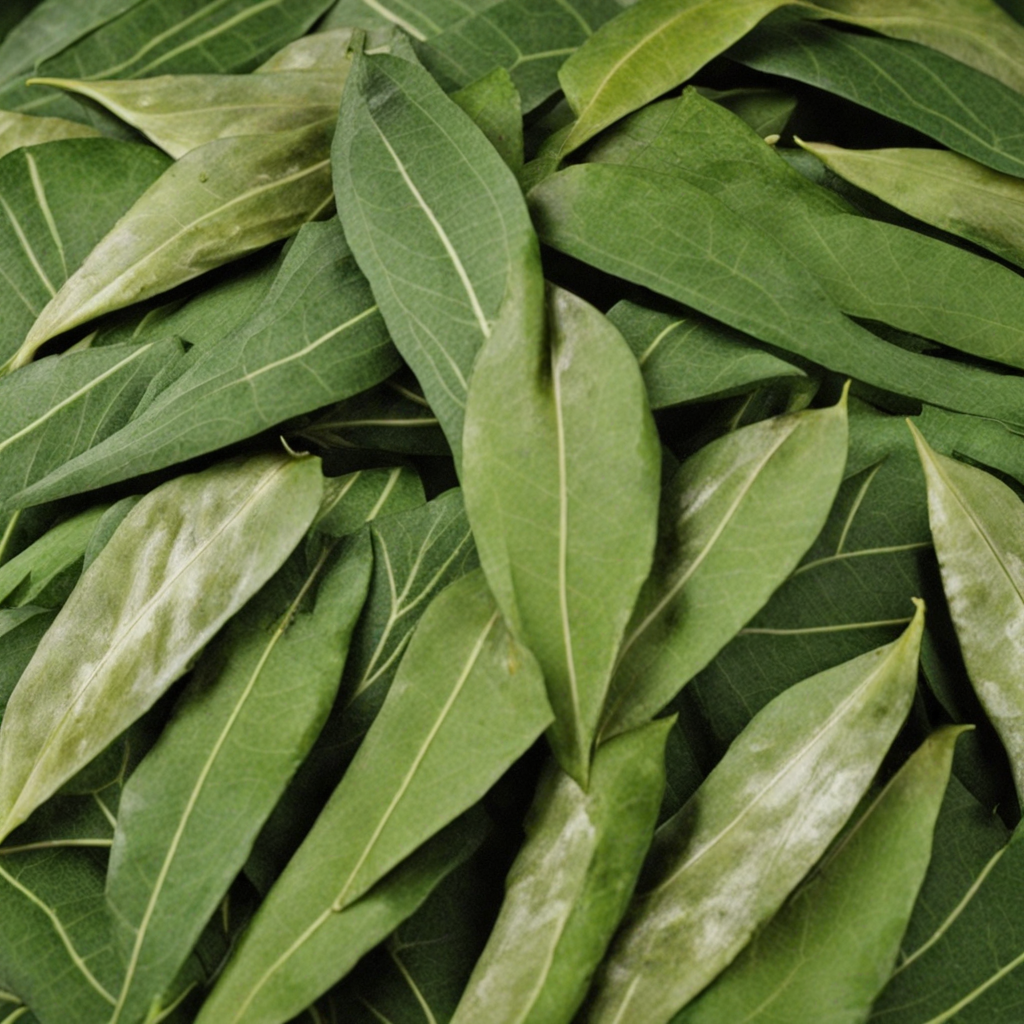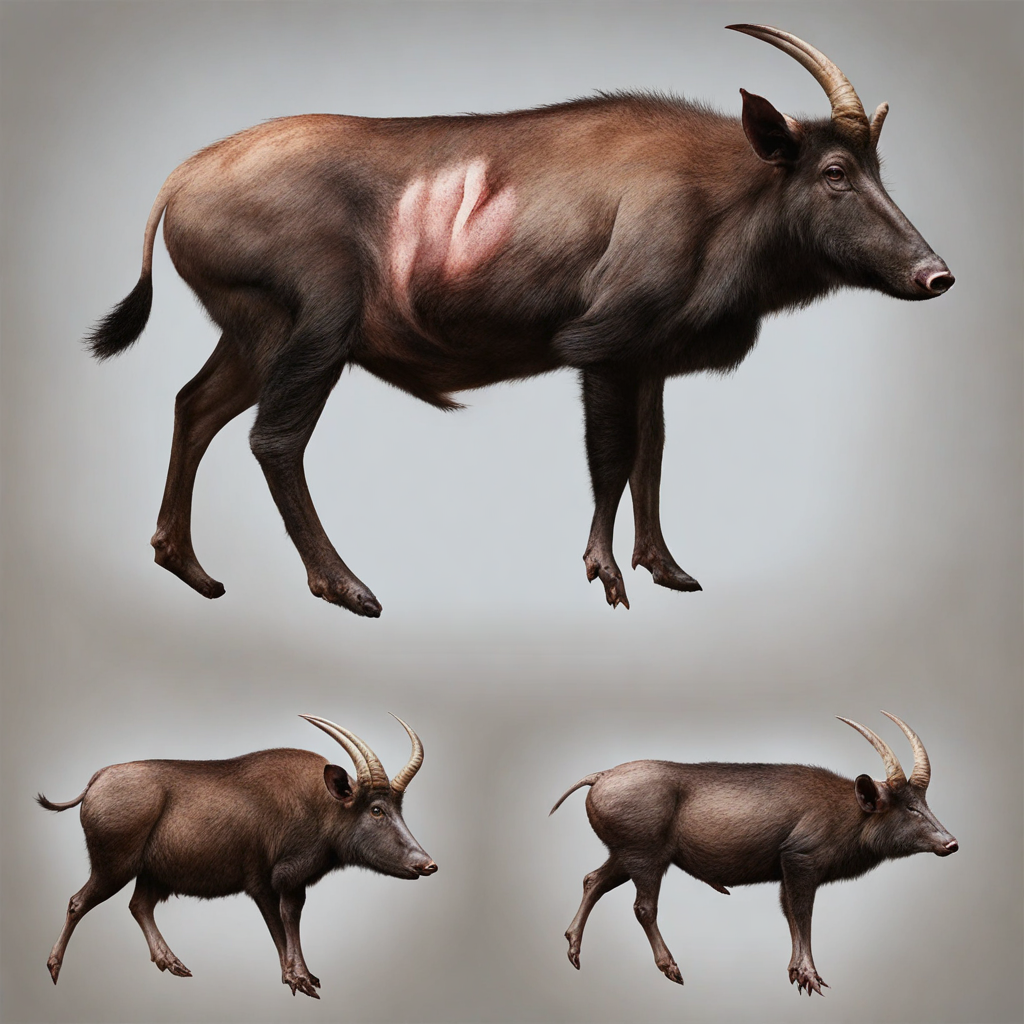Palm Wine
Palm wine, a traditional beverage in Gabon, is derived from the sap of various palm trees, particularly the oil palm and the raffia palm. This sweet, milky liquid is harvested by tapping the flower buds of the trees, a process that involves skill and precision. The sap is collected in containers and can be consumed fresh, but it often undergoes fermentation, transforming into a mildly alcoholic drink with a slightly tangy flavor. The fermentation process enhances its complexity, giving it a subtle effervescence that can vary from batch to batch, resulting in a unique tasting experience with each sip. As you explore palm wine, you'll notice its creamy texture and light sweetness, which can remind one of fresh coconut water or a light fruit juice. The natural flavors evoke the essence of the tropics, making it a refreshing choice, especially when enjoyed chilled. Pairing palm wine with local dishes enhances the experience; its sweetness complements the savory and spicy profiles of Gabonese cuisine. Enjoying it alongside grilled fish or spicy stews creates a delightful contrast that highlights the flavors of both the food and the drink. Palm wine is not just a beverage; it plays a significant role in Gabonese culture and social gatherings. It is often served during celebrations, rituals, and communal events, symbolizing hospitality and friendship. The act of sharing palm wine can foster connections among friends and family, making it a cherished part of social life. For those seeking to discover new tastes, palm wine offers a taste of Gabon’s rich culinary heritage, inviting you to savor not only its flavor but also the stories and traditions that come with it.
How It Became This Dish
The Engaging History of Vin de Palme: A Cultural Elixir from Gabon Vin de Palme, a traditional alcoholic beverage from Gabon, is a testament to the rich tapestry of cultural practices and agricultural heritage in Central Africa. Often referred to as palm wine in other regions, Vin de Palme is distinctly rooted in the Gabonese identity, reflecting the interconnectedness of community, tradition, and nature. Its origins, cultural significance, and evolution over time paint a vivid picture of a drink that is more than just a refreshing beverage; it is a symbol of social life, celebration, and traditional knowledge. #### Origins and Production The history of Vin de Palme can be traced back to indigenous communities in the forests of Gabon. The drink is derived from the sap of various palm trees, predominantly the Raphia palm, which is abundant in the region. Traditionally, skilled tapers, known as "taper" or "tapeur," climb the tall palms to extract the sap, a process that requires both knowledge and dexterity. The sap is collected in containers, typically made from bamboo or other local materials, and left to ferment naturally, resulting in a mildly alcoholic beverage that can be enjoyed fresh or allowed to mature for a stronger flavor profile. The fermentation process is crucial to the production of Vin de Palme. Microorganisms in the environment, including yeasts and bacteria, contribute to the transformation of the sweet sap into a bubbly, slightly effervescent drink, often with a lower alcohol content than many commercial beverages, usually ranging from 2% to 8%. The taste is sweet and tangy, with a refreshing quality that varies depending on the fermentation duration and the specific palm species used. #### Cultural Significance Vin de Palme holds a revered place in Gabonese culture, serving as more than just a drink—it is an integral aspect of social life and a medium for cultural expression. In Gabon, it is commonly consumed during communal gatherings, celebrations, and rituals. It is often served during rites of passage, such as weddings, naming ceremonies, and funerals, symbolizing unity and the shared experience of the community. The beverage is also a traditional offering to ancestors, reflecting the belief in maintaining a connection with the spiritual world. When served during ceremonies, Vin de Palme is customarily poured onto the ground as a libation, honoring those who have passed and seeking their blessings for the living. This practice underscores the importance of respect for heritage and the intergenerational bond that Vin de Palme represents. Furthermore, the drink plays a role in social stratification and hospitality. It is common for households to produce their own Vin de Palme, and sharing this drink with guests is a sign of generosity and respect. The act of inviting someone to partake in Vin de Palme fosters camaraderie and reinforces communal ties, which are essential in Gabonese society. #### Development Over Time The history of Vin de Palme is not static; it has evolved alongside changes in society, economy, and environment. With the advent of colonialism in the late 19th and early 20th centuries, the dynamics of palm wine production and consumption began to shift. European colonizers often viewed traditional practices through a lens of modernization and exploitation. Consequently, commercial palm wine production emerged, leading to increased competition with local producers. In contemporary Gabon, the process of making Vin de Palme remains largely traditional, but there are growing influences from globalization and modernization. Today, some producers have begun to market Vin de Palme as an artisanal product, capitalizing on the growing interest in traditional and organic beverages. This has led to the establishment of small-scale cooperatives aimed at promoting sustainable practices and preserving the cultural heritage associated with palm wine production. Moreover, the attention to Vin de Palme has been heightened by the rising popularity of local cuisines and beverages on the international stage. As Gabonese cuisine garners interest, Vin de Palme has been recognized as a unique offering that showcases the country's rich biodiversity and agricultural practices. This has paved the way for increased tourism and cultural exchange, with visitors eager to experience the drink firsthand and learn about its significance. However, the transition towards commercialization presents challenges. The delicate balance between maintaining traditional methods and adapting to market demands can lead to tensions within communities. Younger generations may be tempted to abandon traditional practices in favor of more lucrative, modern ventures. Nonetheless, there is a strong movement among cultural advocates and local producers to ensure that Vin de Palme remains a living tradition, rooted in the values of community, sustainability, and respect for the environment. #### Conclusion: A Living Tradition Vin de Palme stands as a vibrant emblem of Gabon's cultural heritage, embodying the spirit of the land and the people. Its journey from a local traditional drink to a symbol of communal identity is a reflection of the resilience and adaptability of Gabonese culture. As it continues to evolve, so too does the understanding of its significance in both local and global contexts. In a world increasingly dominated by mass-produced goods and fast-paced lifestyles, Vin de Palme serves as a reminder of the importance of community, tradition, and sustainability. As Gabon navigates the complexities of modernization, the commitment to preserving the craft of Vin de Palme production and its cultural significance remains paramount. In doing so, it not only honors the past but also ensures that future generations can partake in the joy and connection that this unique beverage offers, celebrating life, unity, and the enduring spirit of Gabon.
You may like
Discover local flavors from Gabon







